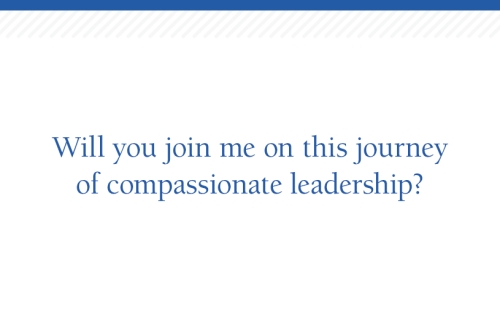Do you want to influence others for Christ and lead others in a Christlike way?
More InformationCurrent Broadcast
New? Start Here!
Request your free gift, connect with Insight for Living Canada, and learn more about our non-profit Bible-teaching ministry.
Current Devotional
Read Philippians 1:9–10
I pray that your love will overflow more and more,
and that you will keep on growing
in knowledge and understanding.
For I want you to understand what really matters,
so that you may live pure and blameless lives
until the day of Christ’s return.
Philippians 1:9–10
Life’s joy stealers are many, and you will need to get rid of them if you hope to attain the kind of happiness described by Paul’s pen. If you don’t, all attempts to receive (or give) a joy transfusion will be blocked. One of the ringleaders you’ll need to do battle with sooner rather than later is that sneaky thief who slides into your thoughts and reminds you of something from the past that demoralizes you (even though it is over and done with and fully forgiven) or conjures up fears regarding something in the future (even though that frightening something may never happen). Joyful people stay riveted to the present—the here and now, not the then and never.
As I attempt to probe the mind of Paul, trying to find some common denominator or secret clue to his joy, I have to conclude that it was his confidence in God. To Paul, God was in full control of everything. Everything! If hardship came, God permitted it. If pain dogged his steps, it was only because God allowed it. If he was under arrest, God still remained the sovereign director of his life. If there seemed to be no way out, God knew he was pressed. If things broke open and all pressure was relieved, God was responsible.
My point? God is no distant deity but a constant reality, a very present help whenever needs occur. So, live like it. And laugh like it! Paul did. While he lived, he drained every drop of joy out of every day that passed. How do I know? This little letter to the Philippians says so.
In the first chapter of Philippians, we learn there is laughter in living—whether or not we get what we want, in spite of difficult circumstances, and even when there are conflicts.
In the second chapter we learn there is laughter in serving. It starts with the right attitude (humility), it is maintained through right theology (God is God), and it is encouraged by right models and mentors (friends like Timothy and Epaphroditus).
In the third chapter, we learn there is laughter in sharing as Paul shares three happy things: his testimony, his goal of living, and his reason for encouragement.
Finally, in the fourth chapter we learn there is laughter in resting. These have to be some of the finest lines ever written on the principle of personal contentment.
Taken from The Owner’s Manual for Christians by Charles R. Swindoll. Copyright © 2009 by Charles R. Swindoll, Inc. Used by permission of HarperCollins Christian Publishing. www.harpercollinschristian.com
Ministry Offer

Discovering Your Child—and Yourself
If we hope to get parenting right, we must follow the principles God has recorded for us in His Word. The best parenting starts with discovering who your child is. In the process you may also discover yourself!
View DetailsCurrent Articles
Let’s prioritize kindness and encouragement in our interactions—knowing that God’s message will be more readily received if His followers communicate with genuine care and attention.
Are you weathering a storm? Is Jesus calling you to come closer to Him through it? Don’t let fear pull you under. Fix your eyes on Him. Feel His presence. Experience the joy of walking on waves with Him.
Happiness, though, rarely likes to stick around. I mean a lasting happiness, an unshakable sense of contentment, an abiding bliss. It’s the kind of happiness that stays truly satisfied because of an inner peace deep within, regardless of circumstances
Joy Is a Choice
I have told you these things
so that you will be filled with my joy.
Yes, your joy will overflow!
(John 15:11)










